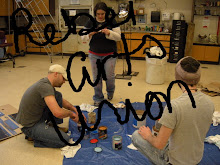(re-posted from Symposium of Aristotle's Ethics)

Bogged Down in Details
I found some very pretty flowers in Aristotle's garden of ethics. I sat down over some intense hours breaking down the sentences in Book VI (and other places) into a more mathematical structure . . . and was amazed at some of the really beautiful ideas Aristotle had. I have come to a small enlightenment on Aristotle . . . I can now feel him as a human being, as a person. I can now see the fragile child within Aristotle, and I realize he's just like me -- vulgar with a spot of divinity. I can accept him now. Unfortunately I don't have any time to elucidate, nor time to think theoretically about life when all these practical people keep hammering away at me about their tick-tock hallucinationism universe . . . so here's something to think about : *
These computations are based on the algorithm from "Computing Special Values of the Myriad Motivations of Ordinary Life". The package applies to Ordinary Life given by the usual series (for Re s>>0),
Assume that Ordinary Life multiplied by a suitable product of Gamma-Detail-factors,
admits a meromorphic continuation to the whole of C. It has, moreover, at most simple poles and is known or conjectured to satisfy a functional equation
or, slightly more generally, a functional equation relating Ordinary Life and a "dual" Ordinary Life-function also known as Mating (i.e. marriage, shacking-up, etc).
To use the formula one has to know the parameters of the functional equation (exponential factor A, sign e, weight w, Gamma-Details-factor parameters l1...ld) and enough coefficients of Gremlin-Goofs an. Note that there is no restriction on the number d of Gamma-Details-factors and they do not have to be distinct. The poles of Ordinary Life have to be known as well, but not necessarily the residues in there. The functions provided allow to perform the following numerical computations with required precision:
- Determine the residues at the poles of Ordinary Life if necessary
- Verify the assumed functional equation numerically
- For a given complex s, compute Ordinary Life results or its k-th derivative for a given k
We are smothered by detail.
Our bodies fill up with knots of anxiety.
Our throats are dry.
We would weep, but our eyes have no tears.
We could cry out, but we have no passion.
Who has done this to us?
We confess the pain we cause ourselves.
We confess the pain we cause others.
May we accept our limitations:
We cannot do everything.
May we affirm our power:
We can do something.
May we open ourselves to larger hope,
In the silence, in the silence.
* The first is a parody of a formula from the Harvard Math Department explained at:
http://www.maths.dur.ac.uk/~dma0td/computel/
and the second is from the website of Unitarian Universalist Association of Congregations :
http://www.uua.org/spirituallife/worshipweb/otherservice/submissions/5883.shtml


No comments:
Post a Comment